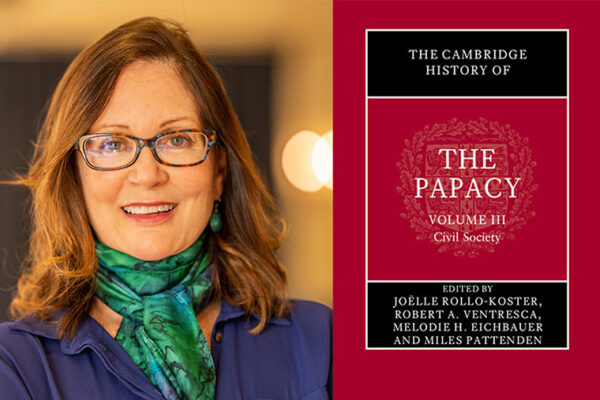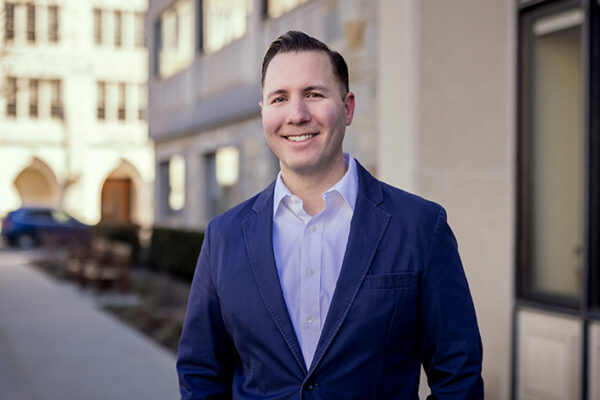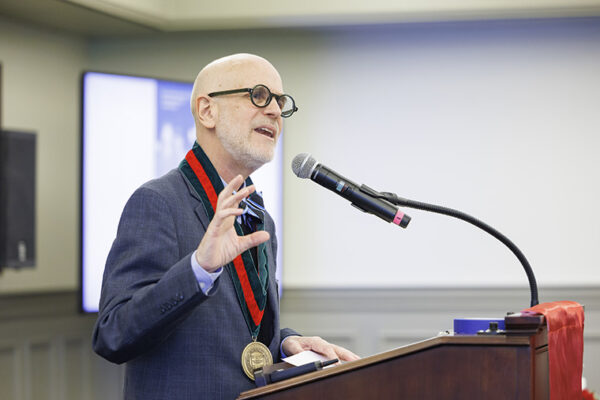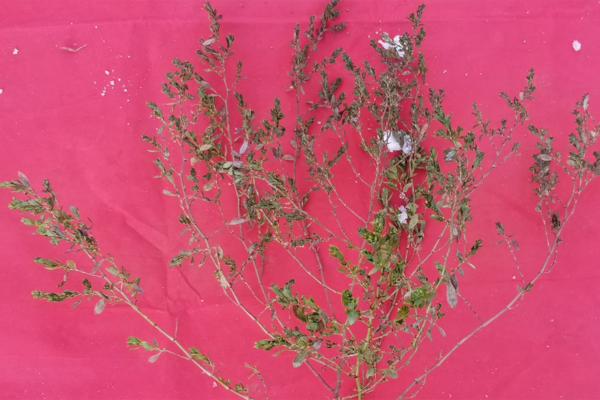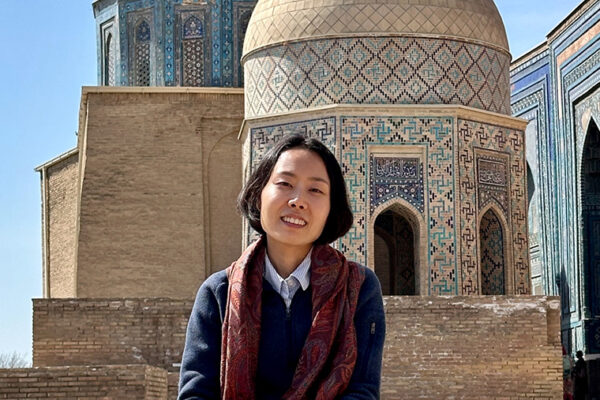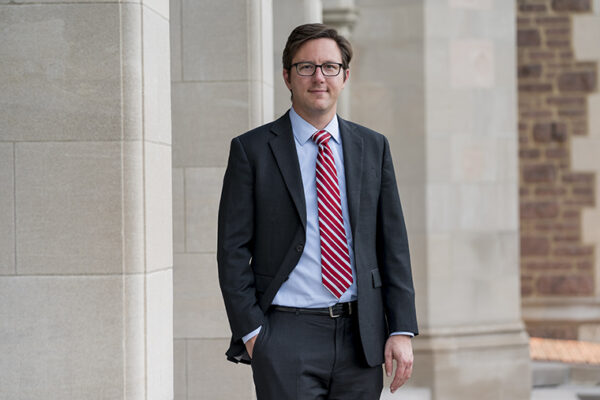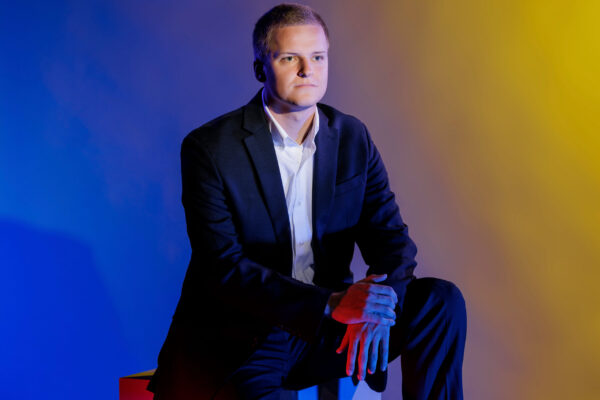Messbarger contributes to ‘Cambridge History of the Papacy’
Rebecca Messbarger, professor of Italian in Arts & Sciences, has published a chapter titled “Popes, the Body, Medicine, and the Cult of Saints after Trent” as part of “The Cambridge History of the Papacy, Volume III: Civil Society.”
Halvorsen advises on spirituality study
Cal Halvorsen, an associate professor at the Brown School, served as adviser on a CoGenerate survey on faith communities and engagement.
Judaken installed as Gloria M. Goldstein Professor of Jewish History & Thought
Jonathan Judaken was installed as the Gloria M. Goldstein Professor of Jewish History & Thought in Arts & Sciences in April.
New Medicaid policy lab brings data to the debate
As Congress weighs $715 billion in Medicaid cuts, WashU’s new Medicaid Policy Analysis Lab offers timely briefs showing how policy changes impact real people — especially in Missouri.
Reawakening ‘sleeping’ crops to combat today’s climate crisis
Archaeologist Natalie Mueller in Arts & Sciences explains how ancient agricultural systems could become a source of alternative crops and methods in an era of rapid climate change.
Lacey named Korea Foundation Scholar
Kim Lacey, a doctoral candidate in history in Arts & Sciences, has won a prestigious 2025-26 Korea Foundation Scholarship for Graduate Studies.
School of Law honors 2025 distinguished alumni
The School of Law has recognized six alumni with 2025 Distinguished Alumni Awards. These annual awards honor alumni who have obtained distinction in their careers while exemplifying characteristics of leadership, commitment, courage and confidence.
Federal court order a victory for rule of law
WashU election law expert Travis Crum said a preliminary injunction blocking two major provisions of a controversial executive order by the Trump administration targeting federal voter registration procedures is a victory for the rule of law.
Class Acts: Andrew Rudolph
Platoon leader for Gateway Army ROTC Battalion. Residential advisor in Brookings Residential College. Rural peer ambassador for the Office of Admissions. Senior Andrew Rudolph has worn many hats — and uniforms — on campus.
Class Acts: Amelia Letson
A Gephardt Institute Civic Scholar, St. Louis Fellow and WashU Votes co-chair, graduating senior Amelia Letson has spent the past four years promoting voter education, researching progressive policy and increasing civic engagement on campus.
Older Stories
